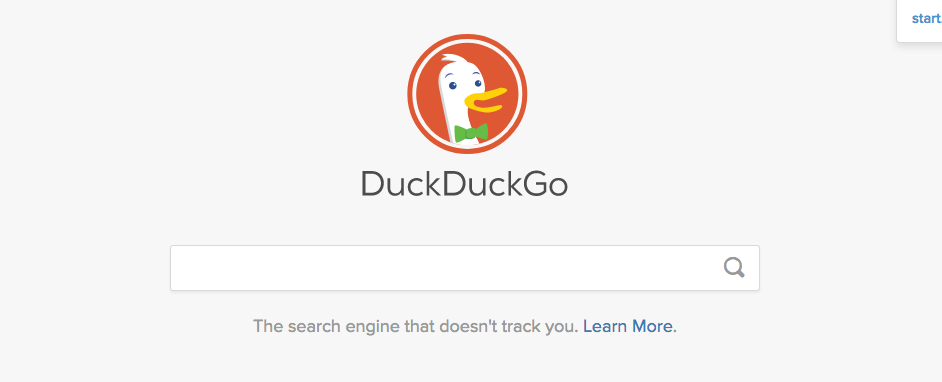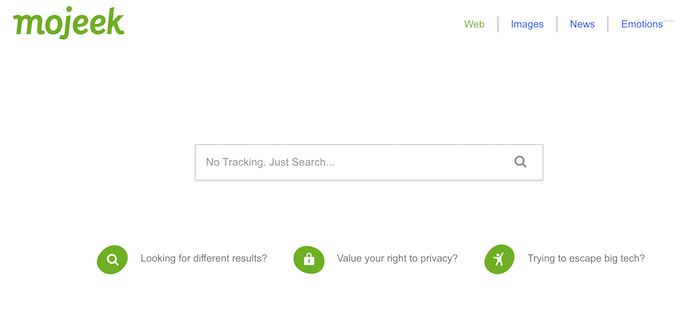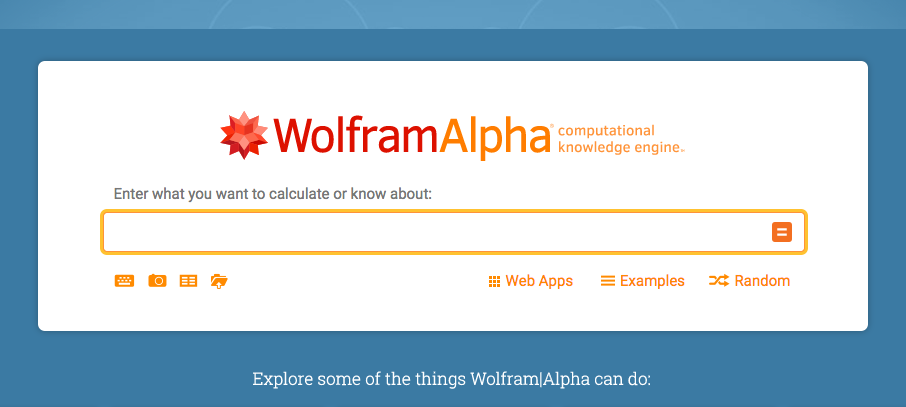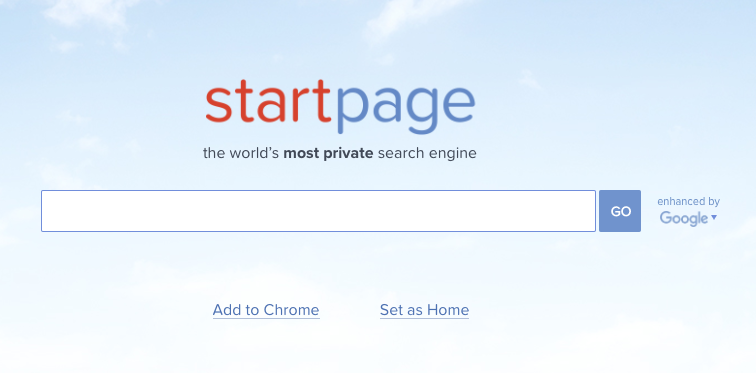We use the Internet to browse websites, consume content, and research to gather information. While doing all these things, we are being tracked by different websites. Not just websites, Google also tracks you and records what you are doing and searching. Even if you use Google Chrome, it does not give you the level of privacy you assume you get. Google, Bing, Yahoo, and other search engines track your search history and build your profile to use this data for advertising purposes. But there are few alternate private search engines that truly respect your privacy. These search engines do not track your activities or queries. So, these are safe ways to search for things.
Some people use incognito mode to remain private, but using incognito mode doesn’t actually make your web browsing private. It only does not records your browsing history and downloads. If you open Google or Bing in incognito mode, these search engines will still track you and your searches.
In this article, I am listing a few best search engines that respect your privacy and do not track your queries.
Private Search Engines That Respect Your Privacy
1. DuckDuckGo
DuckDuckGo is one of the most well-known private search engines designed to protect users from online tracking. It has built its reputation on a simple promise: no tracking, no profiling, and no targeted ads. Every search you make on DuckDuckGo is anonymous.
Unlike Google, which tailors search results based on your activity and behavior, DuckDuckGo gives the same unbiased results to every user. This makes it an excellent choice for people who value privacy and do not want their search data used for advertising.
Also see: What song is this?
2. Brave Search
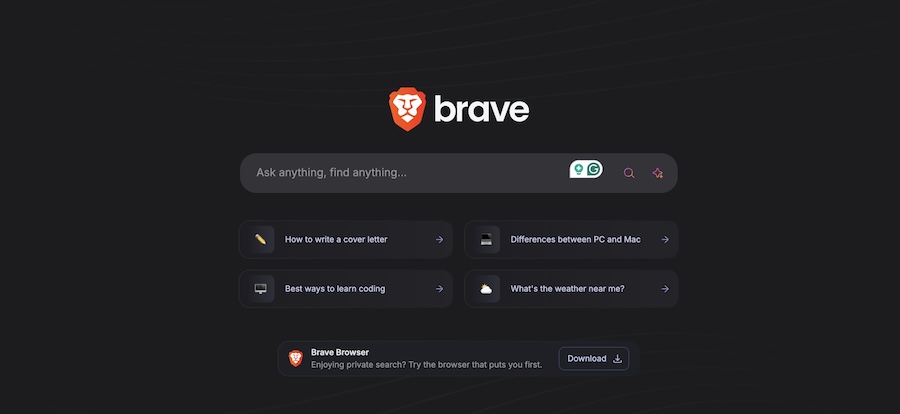
Brave Search is a privacy-focused search engine developed by Brave Software, the company behind the Brave browser. Brave Search is built to give users control over their data and search experience. It does not track your queries, location, or browsing behavior, ensuring that no personal information is collected or shared with advertisers.
What makes Brave Search unique is that it uses its own independent search index, instead of depending heavily on Google or Bing results. This independence allows Brave to deliver unbiased search results without personalized tracking or profiling.
2. Mojeek
Mojeek is also a privacy-focused search engine. It has its own independent search index. That means it crawls the web using its own technology. This makes Mojeek one of the few truly independent search engines available today.When it comes to privacy, Mojeek takes it very seriously. It does not track users, store personal data, or create profiles based on your searches. There are no cookies used for tracking, and your IP address is not logged. Everything is designed around the principle of “no tracking, no profiling, just searching.”
4. WolframAlpha
But it is more of a computational knowledge engine. WolframAlpha doesn’t “search” the internet. Instead, it uses a massive internal database of curated data and applies algorithms to compute answers to factual or mathematical questions. For example, if you ask it to solve equations, analyze data, or compare countries, it will generate results based on verified datasets rather than external websites.
When it comes to privacy, WolframAlpha does collect some data, such as your queries and general usage information, primarily to improve its performance and services. However, it is not built around user tracking or ad targeting like Google.
5. searX
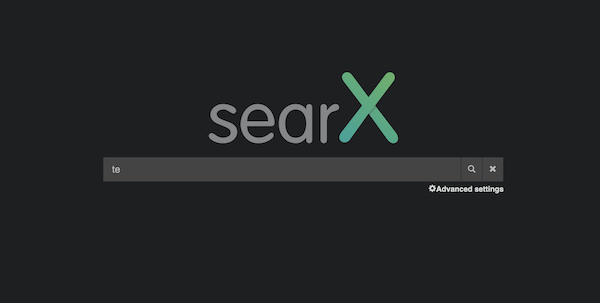
Unlike Google or Bing, SearX does not track users, store search history, or build profiles. What makes it unique is that it is a metasearch engine. It pulls results from multiple search engines (like Google, Bing, DuckDuckGo, Wikipedia, and others) without sharing your identity with them.
Because SearX is open-source, anyone can host their own instance. That means you do not have to rely on a single company. It offers filters, category-based searches (like images, videos, news, files, and more), and an interface that is fast and simple. However, since it depends on other search engines for results, its performance may vary depending on which instance or backend configuration you use.
Also see: List of Proxy servers
6. Swisscows
Swisscows is also another good search engine that respects your privacy. It does not track users, store search history, or create user profiles. It also does not collect personal data or use cookies for advertising purposes. Every search you perform is anonymous.
Swisscows also positions itself as a family-friendly search engine, automatically filtering out explicit or violent content to make it safe for all age groups. It uses its own index for some search results but also relies partly on Bing’s technology to improve accuracy.
7. Startpage
Startpage is based in the Netherlands and focuses entirely on protecting user privacy. Startpage does not track your searches, store your personal data, or log your IP address. What makes it unique is that it delivers Google search results, without letting Google see who you are. When you search on Startpage, it fetches results from Google on your behalf and then shows them to you, but by completely removing any identifying information
Startpage also includes a built-in Anonymous View feature, which lets you open websites through a proxy to prevent those sites from collecting your data or setting cookies.
8. Qwant
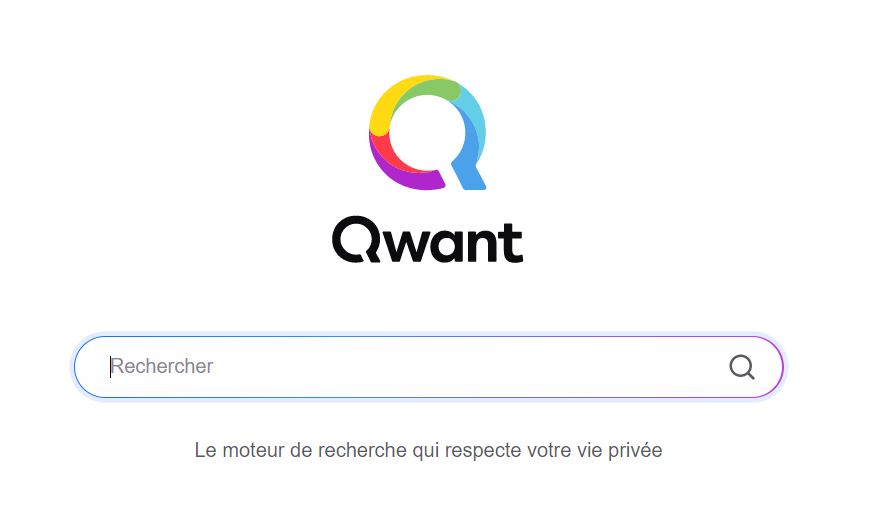
Qwant is designed to protect users’ privacy while providing its own search results. Qwant does not track your searches, store personal data, or create user profiles for advertising. It has its own search index and combines it with results from Bing to improve accuracy and coverage. It also has a dedicated version called Qwant Junior, built specifically for children, which filters out unsafe or inappropriate content.
9. Lukol
Lukol also uses a proxy server to deliver custom search results. It uses Google’s custom search to offer the results, but conserves your privacy by removing traceable entities. It is one of the most notable private search engines. So, you should surely try this once. It also keeps you safe by safeguarding you from misleading or inappropriate sites.
10. Oscobo

Oscobo is a UK-based search engine that focuses on protecting user privacy and data. Oscobo does not track users, store personal information, or use cookies to build advertising profiles. The platform encrypts all searches and ensures that your data is not shared with third parties, advertisers, or government agencies. It uses data from trusted sources like Bing and Yahoo, while filtering out tracking mechanisms.
Are private search engines really private?
It depends on the business model of the search engine. Not all “private” search engines are 100% private, but most aim to limit tracking and protect your data much more than mainstream engines like Google or Bing.
Most private search engines, like DuckDuckGo, Brave Search, and Oscobo, do not log your search queries or link them to your IP address. This means your searches cannot be used to build a personal profile. Unlike Google, which tailors results based on your past activity, private engines usually show neutral results to all users. This reduces profiling and targeted advertising.
Trusted private search engines avoid sharing your data with advertisers or third parties. Some engines, like Startpage, even act as a proxy for Google results, which protects your identity while still showing comprehensive search results.
Wrap Up
This is not the end. There are many other private search engines, including MetaGer, Disconnect Search, and Gibiru. If you want to have a private browsing experience without being tracked, you can try the search engines listed in this article. Also, do not forget to share your favorite private search engine. Let us know via comments.

